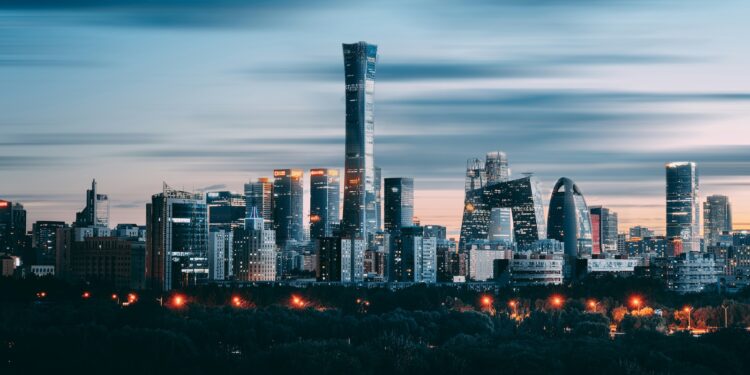Apple has been working for years to move its iPhone production out of China and become more independent. India plays a key role in this. The company wants to produce around 25% of all iPhones in India by 2027 - currently the share is around 15%. But China appears to be deliberately hindering these plans. New reports show that the Chinese government is using three specific measures to slow down Apple and its production partners: travel restrictions for engineers, export controls on essential components and pressure on suppliers not to invest in India.
Apple has relied on China as a production location for decades. The country offers a perfectly coordinated supply chain, experienced specialists and a highly developed manufacturing industry. But this dependence entails risks. The corona pandemic has shown how vulnerable centralized production is. In addition, there are political tensions between the USA and China that could pose a threat to Apple in the long term. The company has therefore begun to expand into other countries, especially India. The Indian government is supporting the relocation with tax breaks and economic incentives. But China does not want to lose control and is taking measures to put obstacles in Apple's way.
Why Apple is betting on India
India is becoming increasingly important as a new production site. The market not only offers a huge, growing population but also lower labor costs and economic incentives. In recent years, Apple has worked with partners such as Foxconn, Pegatron and Wistron to set up a functioning production chain in India. The government in New Delhi in particular wants more international companies to have their production in India. To make it easier for Apple to relocate, there are tax breaks for imported components and discounts for setting up new factories. Apple's goal is to increase iPhone production to 25% by 2027. This means that a quarter of all iPhones sold worldwide should come from India. But China is not on board.
China's targeted measures against Apple's India strategy
The Financial Times reportedthat the Chinese government is taking three concrete measures to combat production relocation.
travel restrictions for Chinese engineers
For production, Apple relies on highly qualified engineers to build factories and optimize production processes. Many of these experts come from China. But Beijing is making it difficult for them to leave the country - often using the argument of national security. In recent months, the Chinese authorities have refused several engineers permission to travel to India. This particularly affects Foxconn, Apple's most important production partner, which is playing a leading role in the expansion into India. Without the necessary specialists, the optimization of production processes is delayed.
export controls for essential components
China controls the export of important components that Apple needs for production in India. Battery technologies and materials for chip and display production are particularly affected. According to reports, Chinese authorities are using customs delays to make exports to India more difficult. For Apple, this means that important components either do not arrive at the Indian factories at all or only arrive with massive delays. Some Chinese ministries have even proposed new export controls to keep certain technologies entirely in the country. For Apple, this could mean in the long term that it will have to rethink its entire supply chain.
Pressure on Chinese suppliers not to invest in India
China is going a step further and is putting pressure on companies that supply Apple to prevent suppliers from opening production facilities in India. If Chinese suppliers are not allowed to invest in India, Apple will continue to be dependent on imports from China. This makes relocation of production more difficult because China still retains control over essential components through export controls. Indian government officials report that Chinese authorities are actively pointing out that expansion into India is undesirable. This could mean that in the long term, Apple will have no choice but to look for new suppliers outside China - which would further slow down the process.
The role of the Indian government
India is doing a lot to attract foreign companies to the country, but there are also political obstacles. The relationship between India and China is tense and this means that the Indian government often does not allow Chinese companies into the country. One example is Apple supplier Luxshare. The company wanted to set up a production facility in India, but the Indian government refused permission. This means that Apple has to deal not only with China's blockades but also with India's political interests. Despite the tax advantages, building a stable supply chain in India remains a challenge.
What's next for iPhone production?
China will not accept Apple's departure without countermeasures. The Chinese government has shown time and again in the past that it is willing to use economic leverage to defend its interests. The trade war between the US and China has further exacerbated tensions. Apple, as one of the most valuable US companies, is a major target of these disputes. If China continues to put pressure on Apple, it could become more difficult for the company to push through its expansion plans in India. At the same time, Apple will have little choice but to build new production sites in the long term to minimize the risk of complete dependence on China. Whether India becomes the new major production site for iPhones depends on how successfully Apple overcomes the political and economic obstacles. The coming years will show whether the company can make the change - or whether China will retain the upper hand. (Photo by Unsplash+ / ZHENYU LUO)
- Apple brings new AI to China – with restrictions
- Apple under pressure: Is an antitrust case looming in China?
- Apple faces geopolitical challenge – will it remain stable?





